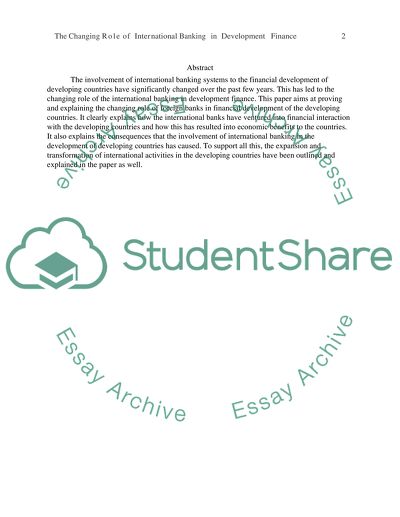Cite this document
(“The Changing Role of International Banking Dissertation”, n.d.)
The Changing Role of International Banking Dissertation. Retrieved from https://studentshare.org/finance-accounting/1476072-the-changing-role-of-international-banking
The Changing Role of International Banking Dissertation. Retrieved from https://studentshare.org/finance-accounting/1476072-the-changing-role-of-international-banking
(The Changing Role of International Banking Dissertation)
The Changing Role of International Banking Dissertation. https://studentshare.org/finance-accounting/1476072-the-changing-role-of-international-banking.
The Changing Role of International Banking Dissertation. https://studentshare.org/finance-accounting/1476072-the-changing-role-of-international-banking.
“The Changing Role of International Banking Dissertation”, n.d. https://studentshare.org/finance-accounting/1476072-the-changing-role-of-international-banking.


